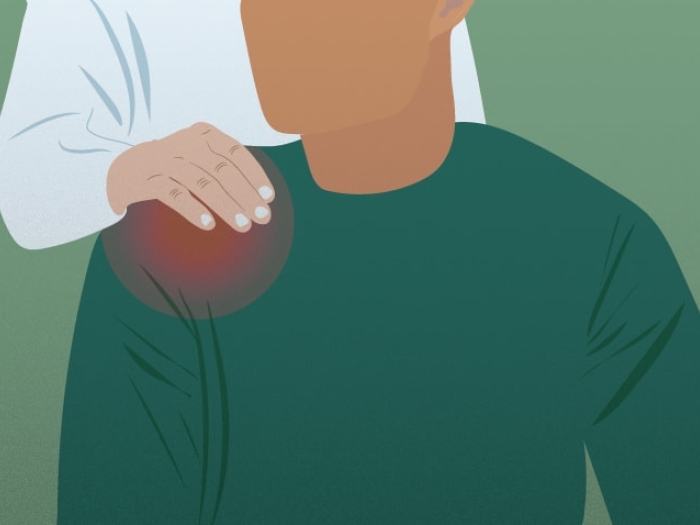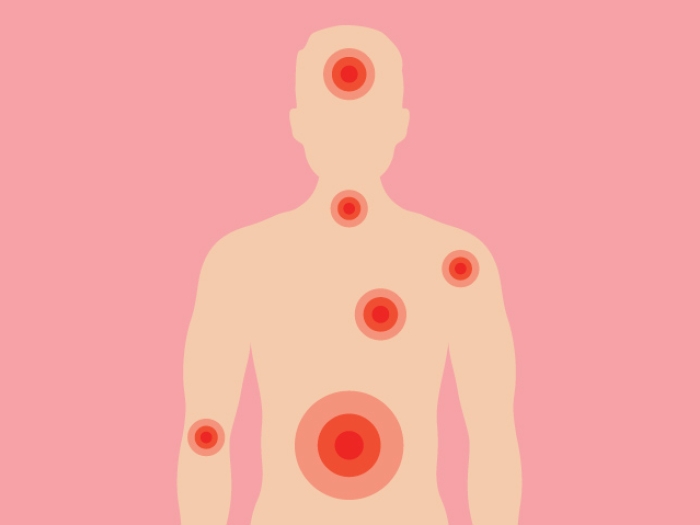Lady Gaga’s announcement that she is affected by fibromyalgia has brought new attention to the condition. A Michigan Medicine expert talks about the chronic disorder.
1:00 PM
Author |

In a new Netflix documentary, Lady Gaga will publicly share her struggle with fibromyalgia, leaving many fans and viewers asking: What exactly is it?
MORE FROM MICHIGAN: Sign up for our weekly newsletter
"Fibromyalgia is a chronic disorder of the brain that causes widespread pain throughout the body," says Daniel Clauw, M.D., director of Michigan Medicine's Chronic Pain and Fatigue Research Center. "In fact, patients with fibromyalgia often have pain and disability that are worse than almost any other chronic pain condition."
Fibromyalgia can develop at any time during a person's life — and with no apparent triggers, he notes.
"We know more about this condition now than ever before, but we need to better understand the mechanisms of it to improve treatments," Clauw says.
Complicating things for many fibromyalgia patients: Their peers and physicians may not even acknowledge the ailment.
Which is why the singer's influence could help fight the stigma.
"I believe, given her fame and popularity, that she is getting better recognition and treatment for the condition," Clauw says. "Many patients struggle to even find a doctor who will see them and take them seriously.
"Hopefully, the increased attention around Lady Gaga will bring more awareness to the condition."
He spoke more about fibromyalgia and what patients need to know:
5 facts about fibromyalgia
It isn't uncommon: Fibromyalgia affects 2 to 8 percent of the population. "It sounds strange to say a range, but we don't know the exact percentage of people affected by fibromyalgia because it depends on the diagnostic criteria physicians are using," Clauw says. "And most people with the condition go undiagnosed."
It varies by patient: "There isn't one specific symptom that signifies this person has fibromyalgia," Clauw says. The most common indicator is widespread pain throughout the body, but he notes that other warning signs might include fatigue, sleeplessness and memory and mood problems.
SEE ALSO: Why Your Tight Ponytail Causes a Painful Headache
It can impair quality of life: Most patients with fibromyalgia can carry on with normal activities, Clauw says. For some, though, the condition can ruin their lives. Pain is widespread, so it can affect any or all parts of a person's body at once — meaning not moving one body part to avoid pain is generally out of the question.
It can deceive others: People with fibromyalgia might struggle to voice their discomfort. "Unfortunately, those that don't understand the condition or the pain often think the affected are making it up," Clauw says. "Even in the medical profession, we only started taking this condition seriously in terms of research in the past 30 years."
It's tough to treat: There are many drug and nondrug treatments that can help people with fibromyalgia, but none of them work in everyone. Patients typically need to try a number of treatments. Still, notes Clauw, "we generally strongly recommend against these patients using opioids, which often worsen this type of pain."

Explore a variety of healthcare news & stories by visiting the Health Lab home page for more articles.

Department of Communication at Michigan Medicine
Want top health & research news weekly? Sign up for Health Lab’s newsletters today!





